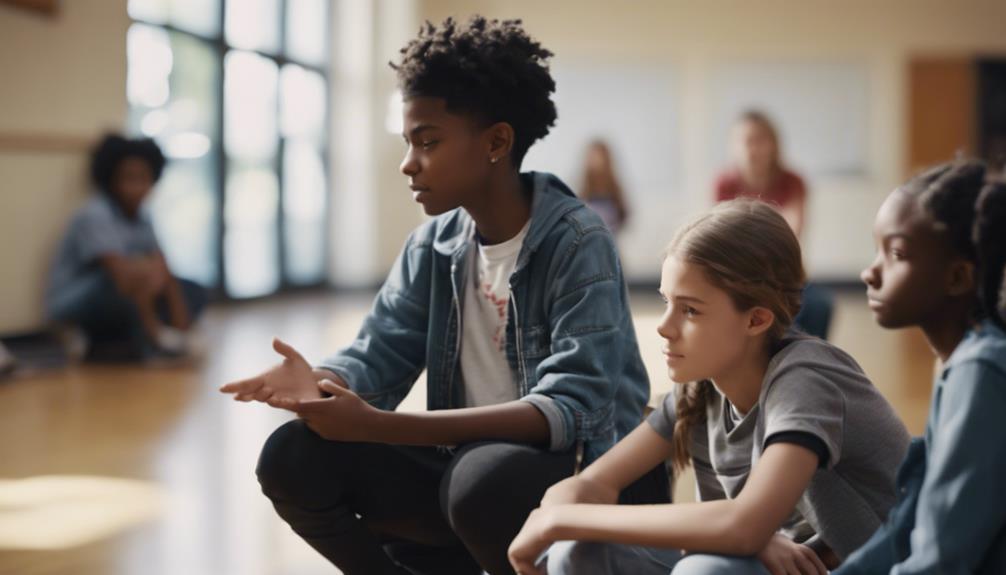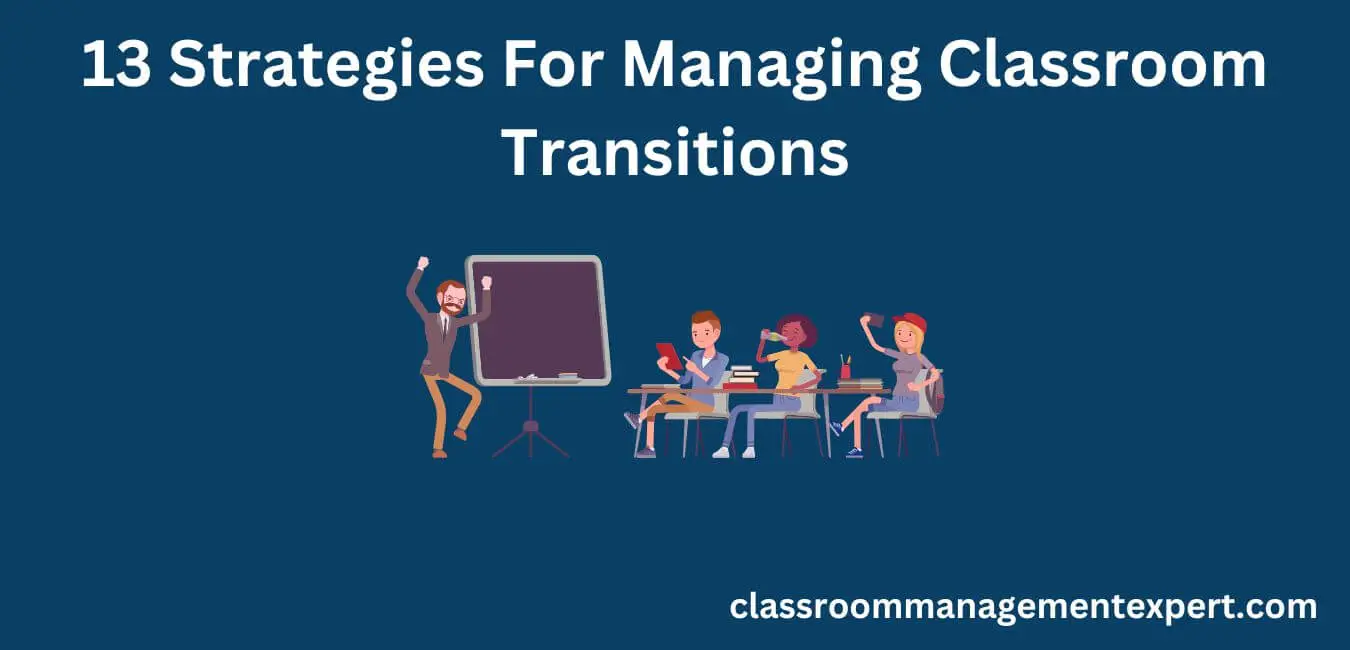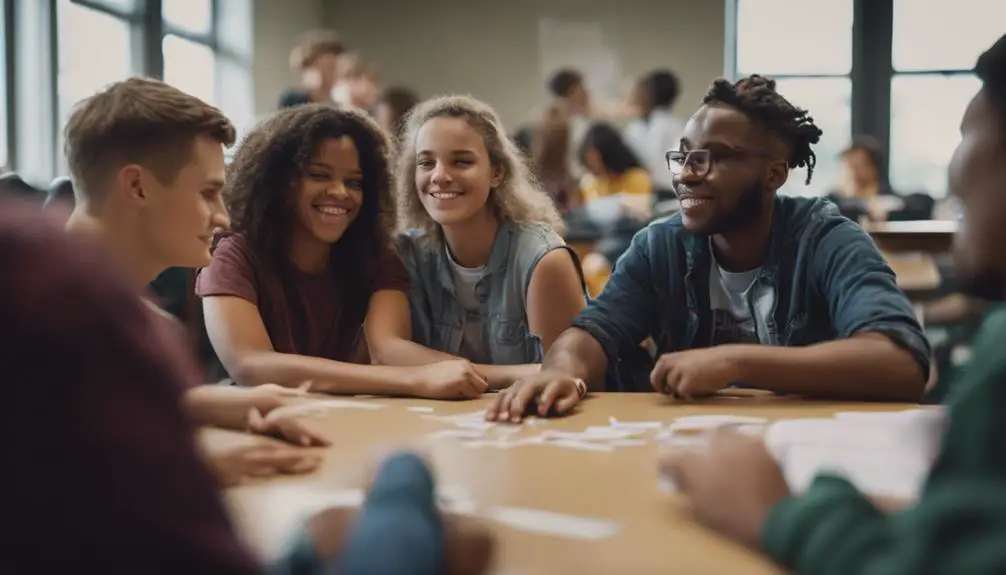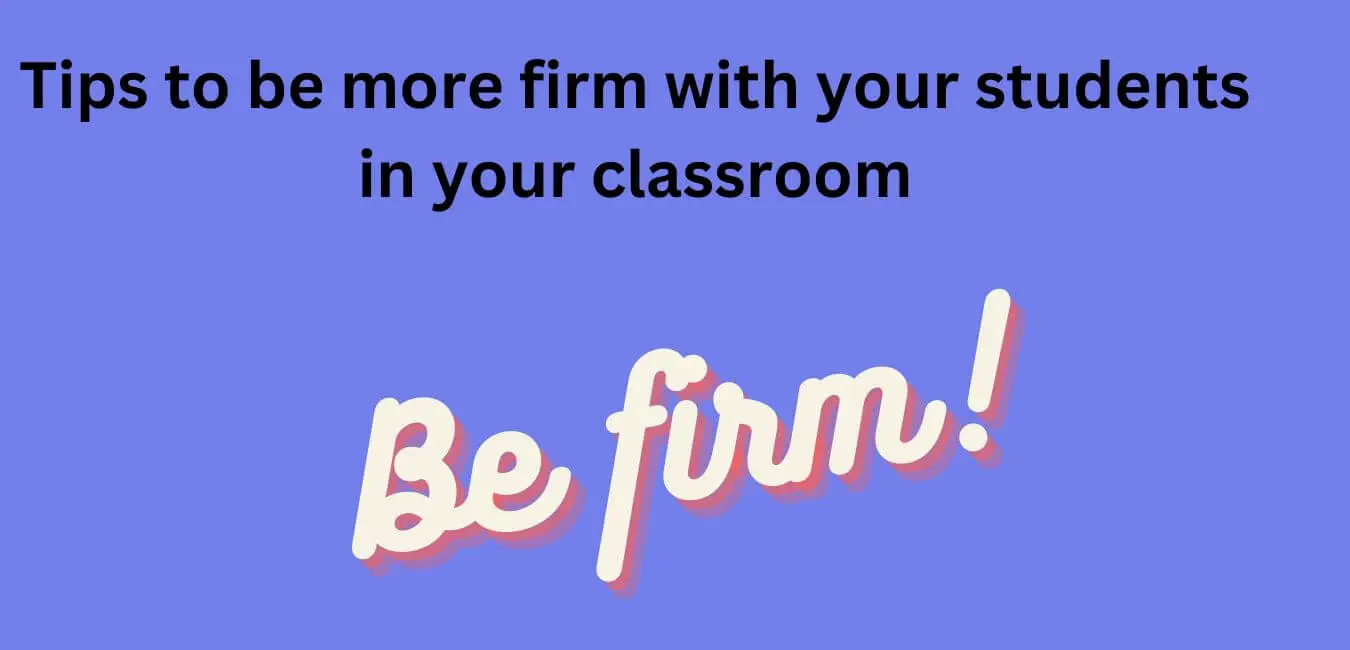As an educator looking for effective ways to resolve conflicts in middle school, I suggest incorporating the following strategies:
- Active listening techniques
- Role-playing scenarios
- Problem-solving strategies
Empower students through exercises that build empathy, train them in communication skills, and encourage the use of peer mediation agreements.
Addressing power imbalances, managing bullying incidents, and celebrating successful resolutions are key components of creating a harmonious school environment and enhancing social-emotional skills.
Active Listening Techniques
I actively practice listening techniques to understand the concerns and viewpoints of all parties involved in a conflict. By tuning in and being fully present during discussions, I create a supportive environment where individuals can express themselves freely. This helps in fostering empathy and trust among conflicting parties.
As a peer mediator, I make it a point to give my complete attention to those sharing their thoughts and feelings. This allows me to pick up on underlying emotions and unspoken worries, which are crucial in conflict resolution. Through active listening and peer support, I facilitate open and honest communication, enabling individuals to address conflicts constructively.
Building on my attentive listening skills, I strive to assist others in finding mutually acceptable solutions to their disputes. By creating a safe and understanding space for dialogue, I aim to help individuals navigate conflicts with respect and understanding.
Role-Playing Scenarios
Role-playing scenarios offer a valuable opportunity for students to enhance their conflict resolution skills. Through engaging in these simulated situations, students can practice and refine their communication techniques in a safe and controlled setting.
This hands-on approach enables them to cultivate essential abilities for mediating disputes and nurturing positive relationships. By immersing themselves in these scenarios, students can develop a deeper understanding of effective conflict resolution strategies and gain confidence in handling challenging interpersonal interactions.
Conflict Resolution Scenarios
Integrating various conflict resolution scenarios into peer mediation training sessions can enhance the conflict management skills of middle school students effectively. Engaging in role-playing exercises centered on empathy and problem-solving strategies can significantly bolster peer support and cultivate a culture of understanding among students. These simulations allow students to practice active listening, empathy, and collaborative problem-solving, ranging from simple disagreements over resources to more intricate interpersonal conflicts.
Throughout these role-playing activities, students can assume different roles to grasp diverse perspectives and devise innovative solutions. Encouraging them to explore multiple conflict resolution approaches nurtures critical thinking and equips them with proficient communication skills. By immersing themselves in these scenarios within a safe and supportive setting, students can build confidence in addressing real-life conflicts.
Incorporating conflict resolution scenarios not only imparts valuable lessons on peacefully navigating disagreements but also fosters a sense of community and mutual respect among students. Through peer mediation training, middle school students can acquire essential life skills that promote harmony and understanding within their school environment and beyond.
Effective Communication Exercises
Let’s dive into exploring role-playing scenarios that focus on effective communication to help middle school students enhance their conflict resolution skills and empathy development. Interactive workshops and team-building exercises serve as excellent tools to improve communication skills. Group discussions and communication games create a safe environment for students to practice active listening, assertiveness, and problem-solving.
Role-playing scenarios allow students to step into different perspectives, fostering understanding and empathy towards others’ feelings and viewpoints.
Imagine a situation where there’s a misunderstanding at a group project meeting. The objective is to practice active listening and clear communication, ultimately improving listening skills and promoting effective communication. Another scenario could involve a conflict between two friends over a misunderstanding, aiming to develop empathy and perspective-taking skills, encouraging understanding of different viewpoints and emotions.
Negotiating a compromise in a team activity is another valuable exercise that boosts problem-solving abilities and fosters collaboration and teamwork skills.
Engaging in these interactive exercises not only sharpens communication skills but also nurtures a sense of community and understanding among middle school students.
Problem-Solving Strategies
When guiding students through peer mediation sessions in middle school, it’s essential to incorporate structured problem-solving techniques to enhance their effectiveness. By integrating issue-solving strategies and team-building activities, a collaborative environment can be fostered, facilitating conflict resolution and improving communication and teamwork skills.
One valuable approach is to lead students through a step-by-step problem-solving process. Begin by clarifying the issue at hand and encouraging all parties to express their viewpoints. Then, collectively brainstorm potential solutions, taking into account the emotions and needs of each individual involved. Subsequently, evaluate these solutions together, discussing the possible outcomes and repercussions. Finally, reach a consensus on a resolution that addresses everyone’s concerns and benefits all parties involved.
In addition to issue-solving strategies, team-building activities can play a significant role in enhancing conflict resolution skills by building trust and promoting cooperation among peers. Engaging in activities that necessitate collaboration and communication can aid students in developing empathy and understanding towards each other, thus establishing a supportive foundation for successful peer mediation sessions.
Empathy Building Exercises
Let’s delve into the empathy-building exercises that can benefit middle school students.
Role-playing empathy scenarios, sharing personal experiences, and practicing reflective listening are valuable activities for students to enhance their understanding of others’ perspectives and improve their communication skills.
These exercises help students develop a sense of empathy and compassion towards others, fostering a more inclusive and supportive school environment.
Through these activities, students can learn to actively listen, empathize with others, and communicate effectively, essential skills that will benefit them both academically and socially.
Role-Playing Empathy Scenarios
Engaging in role-playing empathy scenarios can significantly enhance students’ grasp and application of empathy in peer mediation situations. Immersing ourselves in realistic scenarios through role-playing allows us to develop empathy, enhance our emotional intelligence, and better prepare ourselves to help others resolve conflicts.
These exercises enable us to step into our peers’ shoes, experiencing their emotions and perspectives firsthand.
Role-playing empathy scenarios create a safe environment for us to explore various viewpoints and responses, refining our ability to communicate with compassion and effectiveness. Through these simulations, we learn the importance of active listening, acknowledging feelings, and validating experiences, fostering a supportive atmosphere for constructive discussions.
As we participate in role-playing activities, we nurture a deeper understanding of empathy, recognizing its significance in conflict resolution. These exercises not only enhance our mediation skills but also cultivate a culture of empathy and understanding within our school community.
Sharing Personal Experiences
Incorporating personal experiences into empathy-building exercises can enhance students’ ability to connect emotionally with others during peer mediation sessions. Sharing stories of personal growth and seeking emotional support can foster a deeper level of understanding and empathy among peers. When we open up about our struggles and triumphs, we display vulnerability and authenticity, which can inspire others to do the same.
Sharing personal experiences during empathy-building exercises creates a sense of connection and unity among students. It shows that everyone faces challenges and that there’s solidarity in overcoming obstacles. This shared vulnerability can cultivate a supportive environment where students feel comfortable expressing their emotions and seeking assistance when necessary.
Through sharing personal experiences, students not only enhance their empathy skills but also cultivate a culture of compassion and understanding within the school community. It promotes a sense of belonging and encourages students to offer emotional support to one another, fostering a more inclusive and empathetic environment for all.
Reflective Listening Exercises
When practicing reflective listening exercises during peer mediation sessions, students can enhance their ability to connect with others and effectively resolve conflicts. These exercises are designed to foster deep understanding and authentic relationships among peers.
In reflective listening, students are encouraged to listen attentively, without judgment or interruption, and to rephrase what the other person has said to demonstrate understanding and respect for their viewpoint.
The essence of reflective listening lies in building empathy. By imagining themselves in their peers’ situations and acknowledging their emotions, students can develop a greater sense of compassion and insight. This process enables them to identify the underlying emotions in conflicts and approach conflict resolution with empathy.
Integrating reflective listening into peer mediation not only improves communication skills but also nurtures a supportive and inclusive school environment. Through these exercises, students not only learn effective conflict resolution techniques but also form meaningful connections based on empathy and mutual respect.
Communication Skills Training
Communication skills training is essential for enhancing middle school peer mediation programs. Structured practice of active listening and assertive communication can greatly improve students’ conflict resolution abilities.
Here are four effective techniques to enhance students’ communication skills in peer mediation settings:
- Engage students in active listening exercises. This involves focusing on listening without interruptions, paraphrasing what they heard, and reflecting back for better understanding.
- Encourage role-playing scenarios for students to practice assertive communication techniques. This includes using ‘I’ statements and expressing feelings clearly in common conflict situations.
- Provide feedback sessions to students. Offer constructive criticism on their communication styles, emphasize the importance of non-verbal cues, and stress the need to maintain a respectful tone.
- Foster real-life application of communication skills outside mediation sessions. Promote open dialogue and understanding within the school community.
Brainstorming Solutions Together
Let’s collaborate on brainstorming solutions together to enhance middle school peer mediation programs. Working together to solve problems is key to effective conflict resolution.
Through group brainstorming sessions, students in peer mediation can combine their ideas and viewpoints to create innovative conflict resolution strategies. This collaborative approach promotes teamwork and encourages students to actively engage in the mediation process.
Team-based conflict resolution enables students to cooperate towards the common goal of resolving conflicts peacefully. By making decisions as a group, participants can consider different solutions, evaluate their advantages and disadvantages, and select the most suitable action. This not only fosters cooperation but also enhances critical thinking and communication skills.
Setting Ground Rules
Establishing clear ground rules is crucial for maintaining a structured and respectful environment in peer mediation programs. Here are some key considerations when setting ground rules:
- Setting Boundaries: Clearly outlining acceptable and unacceptable behavior creates a safe space for mediation sessions.
- Communicating Expectations: Sharing the expected conduct of all participants promotes accountability and mutual understanding.
- Defining Consequences: Clearly stating the outcomes of breaking the rules helps uphold order and respect during sessions.
- Reinforcing Guidelines: Consistently reminding everyone of the ground rules ensures that all participants are aware and adhere to the agreed-upon standards.
Encouraging Mutual Respect
Let’s dive into the significance of establishing trust through effective communication and encouraging active listening during peer mediation sessions.
These fundamental aspects are essential for cultivating an atmosphere of mutual respect among students. By highlighting the importance of open conversations and truly listening to one another, we can nurture empathy and collaboration in conflict resolution.
Let’s envision a scenario where students engage in dialogue and seek to understand each other’s perspectives, paving the way for harmonious relationships and peaceful resolutions.
It’s about fostering a culture where communication is valued, and every voice is heard and respected. Let’s embrace this approach to build stronger connections and promote a positive school environment.
Building Trust Through Communication
Building trust and mutual respect in peer mediation sessions at the middle school level heavily relies on effective communication. Establishing rapport and connections with the students involved is key to this process.
Here are four essential strategies to enhance trust through communication:
- Active Listening: Show genuine interest in each student’s perspective, demonstrating empathy and understanding.
- Clear and Simple Language: Use straightforward language that’s easy for students to grasp, avoiding confusing jargon or complex terms.
- Nonverbal Cues: Be mindful of your body language, maintain eye contact, and use open gestures to convey attentiveness and respect.
- Encouraging Engagement: Foster a safe environment where students feel empowered to express themselves without judgment, promoting open dialogue and collaboration.
Incorporating these strategies can help create a supportive and trusting atmosphere for effective peer mediation sessions.
Promoting Active Listening
In peer mediation sessions at the middle school level, prioritizing active listening is crucial to promote mutual respect. Listening skills are key to fostering understanding and resolving conflicts effectively. When mediating disputes between peers, it’s essential to actively listen to each party’s perspective without judgment. Showing genuine interest in what each individual has to say creates a safe space for open communication and collaboration.
Communication strategies like paraphrasing and summarizing can ensure that everyone feels heard and valued during the mediation process. Reflecting back what you have heard demonstrates understanding of the concerns raised and helps clarify any misunderstandings. Encouraging participants to express themselves fully and respectfully helps build trust and promote a positive mediation experience.
Incorporating active listening techniques not only enhances the quality of peer mediation sessions but also cultivates a culture of empathy and mutual respect within the school community. By honing these skills, students can learn to resolve conflicts peacefully and constructively.
Teaching Conflict Resolution Skills
Teaching conflict resolution skills is a crucial part of peer mediation training in middle schools. It equips students with the necessary tools to effectively handle disagreements and foster positive relationships within their school community.
Here are four essential strategies for teaching conflict resolution skills:
- Conflict Resolution Workshops: Engage students in interactive workshops that focus on different conflict resolution styles and techniques.
- Role-Playing Scenarios: Have students participate in peer mediation role-playing activities to practice problem-solving strategies in simulated real-life conflicts.
- Group Activities: Foster teamwork and communication skills by organizing collaborative group activities that require students to work together to resolve conflicts.
- Peer Mediation Training: Empower selected students with specialized training to become peer mediators, enabling them to facilitate resolutions and create a positive school environment.
Using Neutral Language
Neutral language is crucial in peer mediation to ensure fairness and impartiality when resolving conflicts. During mediation sessions, it’s important to maintain a neutral stance by using language that doesn’t show bias towards any party involved. Neutral language helps create a safe and respectful environment where both sides can feel heard and valued.
In addition to verbal communication, body language also plays a significant role in conveying neutrality during peer mediation. The mediator can show impartiality through open posture, eye contact, and a calm tone of voice. These nonverbal cues help establish trust and demonstrate that the mediator is unbiased in guiding the resolution process.
To enhance neutrality in peer mediation, it’s advisable to avoid judgmental words, use neutral terms, and focus on facts when communicating with the parties involved. Maintaining a relaxed body language with gestures that convey openness, along with a steady pace and composed demeanor, can further support the mediation process.
Promoting Fairness and Equality
To foster fairness and equality in the peer mediation process at middle schools, it’s crucial to prioritize these core principles. Here are some effective strategies to ensure a just and inclusive environment for all students involved:
- Equity Workshops: Engaging students in workshops that focus on equity can help them grasp the importance of fairness in resolving conflicts peacefully.
- Parity Campaigns: Initiating campaigns that champion equality can raise awareness and promote a culture of respect and empathy among peers.
- Inclusivity Programs: Introducing programs that celebrate diversity within the school community can cultivate a sense of belonging for all students, irrespective of their backgrounds.
- Cultural Competency Training: Equipping peer mediators with training in cultural competency can enhance their ability to navigate cultural differences and uphold fairness during mediation sessions.
These strategies play a vital role in creating a supportive and harmonious environment where all students feel valued and respected.
Implementing Peer Mediation Agreements
To establish peer mediation agreements effectively, one approach is to facilitate collaborative discussions among students. Encouraging open communication and active listening allows students to work together to define expectations, responsibilities, and consequences within their agreements. This collaborative process fosters a sense of ownership and commitment to maintaining a positive mediation environment.
Ensuring peer accountability is crucial for upholding these agreements. To promote accountability, scheduling follow-up sessions to evaluate progress, address challenges, and offer additional support can be beneficial. These sessions provide opportunities for students to reflect on their roles and commitments in the mediation process.
In addition, peer support plays a vital role in sustaining effective mediation agreements. Ongoing mentorship from older students or trained mediators can provide guidance, encouragement, and reinforcement of positive mediation practices. This mentorship serves as a valuable support system for students engaged in peer mediation, assisting them in navigating conflicts and developing essential communication skills.
Handling Power Imbalances
When it comes to addressing power imbalances in peer mediation, it’s crucial to acknowledge and grasp the dynamics at play within the conflict resolution process. Recognizing power dynamics is key to ensuring fair and effective outcomes in the mediation.
Here are four essential points to consider:
- Understanding Power Dynamics: Identifying power imbalances between the parties involved is crucial for addressing them effectively during the mediation process.
- Promoting Equity: Building confidence in each participant can help level the playing field and empower individuals to express themselves freely.
- Encouraging Active Participation: Empowerment dynamics play a significant role in ensuring that all parties feel heard and valued during the mediation session.
- Fostering Collaboration: Creating a collaborative environment can help shift power dynamics towards mutual understanding and resolution.
Addressing Bullying Behaviors
Addressing bullying behaviors necessitates a proactive and structured approach to establish a safe and respectful environment for all students. Prevention of bullying is essential, and peer support plays a crucial role in fostering a positive school climate.
When addressing bullying incidents, it’s vital to implement conflict intervention strategies promptly to effectively resolve the issue. Peer mediation empowers students to take an active role in resolving conflicts and preventing bullying.
By equipping students with the necessary skills and resources to address bullying behaviors, we can cultivate a culture of empathy and understanding within the school community. Encouraging students to stand up against bullying and offer support to their peers can foster a sense of unity and mutual respect among students.
Educating students about the various forms of bullying and its impact on individuals is important. By raising awareness and promoting empathy, we can create a supportive environment where students feel empowered to speak out against bullying and support one another.
Through collaborative efforts and a focus on student empowerment, we can strive towards creating a school where all students feel safe, respected, and valued.
Celebrating Successful Resolutions
To showcase the positive outcomes of conflict resolution through peer mediation, it’s crucial to recognize and celebrate successful resolutions within the school community. Celebrating these achievements not only reinforces the value of peaceful problem-solving but also promotes a supportive and inclusive school environment.
Here are some ways to acknowledge and celebrate student accomplishments in conflict resolution:
- Sharing Success Stories: Inspiring others to follow suit by sharing stories of students who’ve effectively resolved conflicts through peer mediation.
- Peer Support Programs: Fostering a sense of community and understanding by implementing programs where students can congratulate and support each other for resolving conflicts successfully.
- Recognition Ceremonies: Motivating others to emulate positive behaviors by hosting ceremonies to publicly recognize students who’ve excelled in conflict resolution.
- Student Awards: Encouraging active engagement in conflict resolution and promoting a harmonious school environment by instituting awards for exceptional achievements in peer mediation.
Conclusion
As the day comes to a close after another successful round of peer mediation, I’m struck by the profound impact of light in times of darkness. Just as our mediation techniques shine a light on the path to resolution, so too does kindness and understanding illuminate the way for those caught in conflict.
Let’s continue to be beacons of hope and peace, guiding others towards harmony and unity. Together, we can build a world where empathy and effective communication are the cornerstones of our interactions.


















